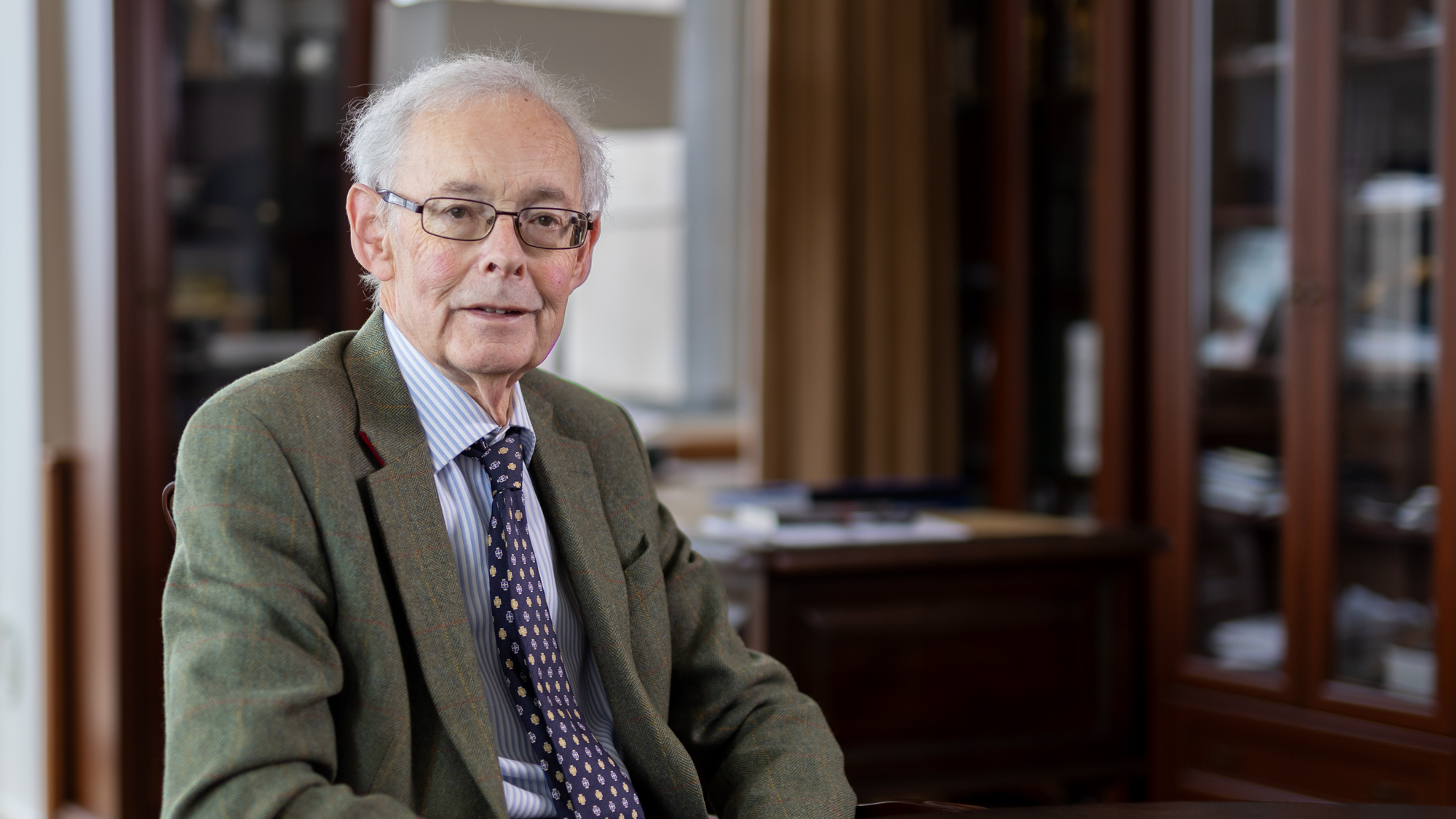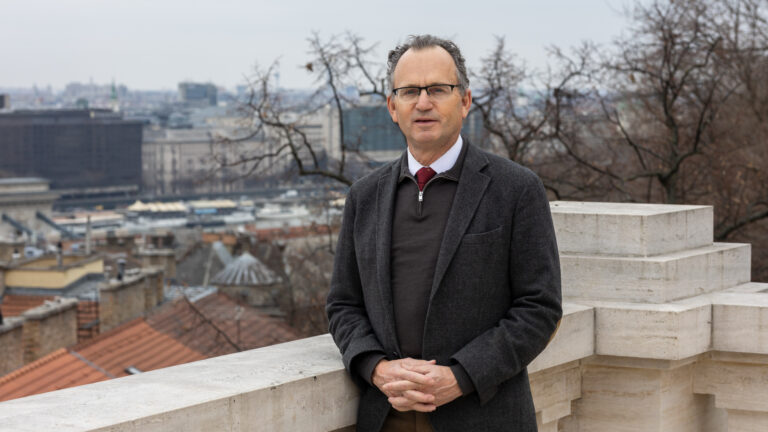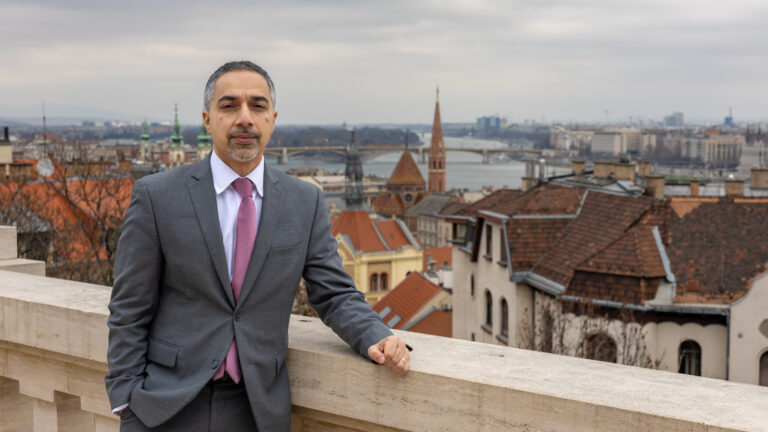Anthony O’Hear is a professor of philosophy who teaches at the University of Buckingham. For 25 years, he served as Director of the Royal Institute of Philosophy and editor of its journal Philosophy, from 1994 to 2019. His new book Popper, Philosophy and Faith is coming out next month, a Cambridge Element book published by the Cambridge University Press. He was kind enough to sit down with our website for an exclusive interview to discuss his new publication.
***
You have a book coming out soon about Karl Popper, the Austrian British philosopher, titled Popper, Philosophy and Faith. Would you give our audience an overview of his philosophy? And then would you tell them why you felt there was a need to cover his work in a standalone book?
Well, in 1980 I published my own book on Karl Popper. It was in a series called Arguments of the Philosophers, and I now feel that in that book, I didn’t really do justice to the breadth and depth of Popper’s thinking, particularly in his later work, which has actually been neglected. So, Popper is best known—and very well known—for his contributions to the philosophy of science and, subsequently, for his writings on the open society. These things have been very widely discussed and commented on.
The philosophy of science I criticized in various ways in my earlier book, and I don’t actually disagree with the general points I was making, but I think I didn’t emphasize an aspect of the philosophy of science enough. And that aspect is Popper’s view that all scientific theories are fallible and very likely to be falsified. He often used to say: ‘We can only guess.’ That was important because in 1919, when he was 17, the British astronomer Arthur Eddington went to the South Atlantic to observe a total eclipse of the Sun and he used this as a test case between Newton and Einstein. According to everybody who thinks about this, the observations that Eddington made showed that Einstein was correct and Newton was wrong. Now for Popper, this was a very profound moment because Newton’s theory had obviously been holding the fort for 200 years and everybody thought that it was pretty near the ultimate truth. But Popper said even this, the best scientific theory that had ever been, was shown to be wrong. Now, this idea of the fallibility of science is very important for people.
Was he a frontrunner in that thought? Was he among the first to put forth this idea that all science is fallible?
I don’t think he was the first, but he certainly emphasized it very strongly. He particularly wanted to say that while you could show that a scientific theory was false, you couldn’t prove that it was true. And the reason you couldn’t prove it was true was because any scientific theory makes predictions way into the future or even retrospectively into the past into things that we can’t observe. So, we can never know whether some future observation might not show our theory to be wrong. Now, I think that that aspect of Popper’s thought has not been emphasized enough because he thinks that all, even the best supported theories of the present day, are almost certain to be proved false in the future. So this suggests a much more open attitude to science than many people who want everything to be guided by it have.
Isn’t this kind of a solipsistic idea? Is this way of thinking in some way related or parallel to solipsism of Descartes?
I don’t think he was Cartesian, but what he was arguing against was people who thought that you could definitively show that scientific theories are either true or even very probable. I think that this is important because it also leads him to question the notion of expertise. And he thinks that even today’s experts are likely to be wrong, and we should always bear that in mind. So that’s something that I have emphasized in my new book, more than I did in my old book.
Popper was born in the Austro–Hungarian Empire.
He was, and he had grandparents from both Hungary and Silesia.
Did he have any connection to the Hungarian people, to the Hungarian identity, or was he just German Austrian?
He was thoroughly Viennese, German Austrian, if you like. But there was a second thing that happened in 1919—I told you about the Eddington expedition earlier. In 1919, when he was 17, he was very obsessed with the poverty of many people and the bad conditions in which many people lived in Vienna. And for a time, he was quite sympathetic to the communists who were running around in Vienna at the fall of the empire, which you Hungarians would of course be very well aware of.
Well, the second thing that happened in 1919 that influenced Popper greatly was that there were some demonstrators protesting against the current regime in Vienna, and the police shot them dead. Now, Popper’s communist or Marxist associates were pleased about this because they thought that this would inspire more people to join the revolution. And Popper was disgusted by this attitude for two reasons. One, he thought that it was completely wrong to regard human life in that way as a means to some political end. But secondly, he thought the end itself was uncertain. We have no knowledge, we have no idea of what the future is going to be like. Yet these people were saying that it was good for people to be killed now to promote some situation in the future about which neither they nor anybody else has any genuine knowledge. So this was what led him really to devise his ideas about the ‘open society’ in his political philosophy.
So, in the open society, he takes it as a premise that we cannot know the future. Again, as with science, we can only guess, so with politics, we can only guess. We can guess what the future is like, but we don’t know. Now, in the case of the future, what we don’t know is something that’s going to affect people in a very direct way, much more than with science. So he thinks that in an open society, what should happen is that people should see what evident evils there are in a society and take steps carefully to remedy these evils. They should not be inspired by utopian ideas that require slate cleaning, require starting everything afresh.
You’ve asked me whether Popper was connected to Hungary. Actually, he was an admirer of a Hungarian thinker called Aurel Kolnai who wrote a great book called The War Against the West in 1938, a devastating analysis and critique of Nazism. Kolnai, throughout his whole life, argued against utopian theories. And I think that you can see Popper and Kolnai as being quite close in this respect. What Popper argued in The Open Society was that anybody, not just experts, can have a view about a social policy, particularly those who are most affected by it.

Would you describe it as a populist thought? I know that by this time, there had been a populist movement in the United States.
That brings us to another point. Well, he certainly thinks that rulers should pay attention to the criticisms that come from anywhere in society. So he’s very much against identitarian politics. He thinks everybody has a right to be heard, doesn’t matter where their views come from. It’s how persuasive, how valid the views are that should be taken into account. But he does not think that the majority is always right. Why does he not think that? Well, he’d obviously had the experience of Hitler taking over in Germany, and of course, even more in Austria. He’d left Austria by then, but in Austria in 1938, there was a huge majority for the Anschluss. So, he thinks that democracy is an important factor of an open society, but the importance of democracy is that it ought to provide—which of course it didn’t in the case of Hitler in Germany or in Austria—a regular and peaceful means of getting rid of the rulers. So this was the important aspect of democracy. It gave a chance every four years or five years or so to vote the rulers out, and that meant the rulers would be much more attentive to the effects of their policy.
There was a more extreme manifestation of this idea back in the late 19th and early 20th century. It was called anarchism, which actually sought to assassinate rulers.
No, no, no. He didn’t want to assassinate them. He wanted them to be voted out. I did say he wanted them to be regularly and peacefully removed, you know, which is what is supposed to happen, and what does happen in Britain and America even recently, so everybody in the society would accept that. Well, maybe communists, maybe anarchists won’t, but this is what the spirit of the society should be. But Popper does not think this can be automatically guaranteed. He thinks that it also requires, within a society, a tradition and a kind of sensitivity of people, particularly the elite, because they pull the strings more in the society, to accept this kind of situation where, as I said, rulers can be regularly and peacefully got rid of.
Did you come across any ethnic Hungarian philosophers during your work as a philosophy professor? Is there somebody from Hungary whose work stood out to you?
I’m not sure this is too relevant to the interview, but after Popper left Austria in 1937, and went to New Zealand, he wrote The Open Society and Its Enemies in New Zealand. In 1946 he was brought to London by Hayek, who helped him get Open Society published. So he was a close associate and was always a friend of Hayek. Hayek, obviously, was Austrian and Viennese.
I think that four people in the 1940s were very influential in arguing against totalitarian societies in the West, specifically Marxist societies. When in Britain there was quite a lot of admiration for the Soviet Union, shamefully, the four people who taught them against that were Hayek in The Road to Serfdom, Popper in The Open Society and Its Enemies, George Orwell—who obviously knew communism at first hand from the Spanish Civil War—in Animal Farm and 1984, and Arthur Koestler, who was Hungarian and who wrote Darkness at Noon and had been a communist as well. It’s interesting that, in the West, three of the key figures who initiated the ideological movement against communism came from Vienna and Budapest.
What I’ve told you so far is very well known. But in my new book, I discuss Popper’s later thinking, which has been neglected. In his later thought, he proposed, first of all, a dualistic theory of the mind, which, of course, is not fashionable in contemporary philosophy. He thought that we couldn’t explain or consider human behaviour simply in terms of the brain and the body. We had to consider what he called a self, acting above the brain, and causing the brain to react in various ways. He wrote a book called The Self and the Brain with a neuroscientist called John Eccles, with whom he got very friendly in New Zealand. In this book, Popper tries to argue, or tries to show, that we can only explain human behaviour if we think of self—something immaterial in a way—which is acting on the brain, and which is leading us to do what we do. That aspect of Popper’s thought has been completely neglected, even though he worked on it in the last 20 or so years of his life. He thinks that both life itself and consciousness emerged from earlier levels of reality and are inexplicable in terms of those earlier levels.
‘Popper thought that we couldn’t explain or consider human behaviour simply in terms of the brain and the body’
Would you explain Popper’s ‘three worlds’ theory, please?
In his later work, Popper suggested that we think of reality—at least the reality that we’re involved with—as being on three levels. There’s the physical level, which is chairs, tables, atoms, molecules, etc, and even biological things that are living. So that’s what he calls ‘world one’. And of course, that part of reality is what science primarily investigates. World two is the world of consciousness. So although he thinks that life can’t really be explained in terms of physics, it can still be regarded as material.
But consciousness cannot?
No. Although animals are also conscious, so he’s not a Cartesian. Descartes thought that animals were not conscious, just to go back to one of your earlier points. And Popper thought that, obviously, consciousness was a very important part of our human existence. So world two is the world of consciousness, and we’re particularly thinking of human consciousness here. But as conscious beings, we have thoughts and ideas which we then project into what he called world three. Now, I think the best illustration I could give of world three is mathematics. So his view is that human beings created mathematics by perhaps counting—primitive sheep herders or people who were following animals across the savanna. They could have started counting animals to know how many there were, whether their own sheep or strayed, etc, etc. So they would have invented numbers through counting.
However, mathematics, according to Popper, arises from human thought and human consciousness, but once it has been created, it then has a life of its own in what he calls world three. It may be that the primitive herdsmen or tribesmen that started counting up to 12, let’s say, they would have invented mathematics, according to Popper. He is not a complete Platonist. But once it was invented, all the truths of mathematics already came into being. So all the theorems of mathematics, advanced mathematics, etc, those were all laid up already in the system of mathematics that had been projected, as it were, into world three. Now, this is—as most people will say, and probably will agree with this—a Platonic picture, a picture of a world above us and beyond us that we are in contact with through our thinking and which itself influences our thinking, and in which we can make discoveries. I’ve given mathematics as an example, but he also thinks that language and its meanings, institutions and the way they develop, forms of art, like classical music, all these things exist in an abstract realm in world three, and we can influence it.
Which is separate from human consciousness.
Yes, yes, yes. We are in touch with it through human consciousness and we in many ways have created it. After all, I suppose classical music was invented by people in the late Middle Ages moving into polyphony and so on. So it was a human invention but the people who invented it had no idea what Bach or Beethoven or Brahms could have done with this, but Beethoven, Bach and Brahms were all being influenced by the structures that already had been brought into being by, Palestrina, or Monteverdi perhaps.
So we then get a picture of the three worlds. The physical world produces human beings who are conscious, that’s world two. Human beings create world three through their conscious activity. Now, world three then influences human beings in world two, who influence the material world. Thus we get a kind of cyclical process of the three worlds interacting through us as it were in the middle of it. Now I think this idea of three worlds, like his idea of the self, I think these are very fruitful ideas. What I think is disappointing is that although, as I’ve already said, Popper’s ideas on science and the open society have been well discussed and well analyzed—although more can be said about them—, very little has been said about or commented on these other aspects of his thought, which is what I try to remedy in my new book.
I can give you an example of the neglect of these areas of Popper’s thought from the centenary conference. It was in Vienna in 2002, the centenary of his birth. So there were 250 or more papers, discussions, and lectures on Popper at that conference. None, and I mean none, was on his views about the self—Popper was dead, by the way, so it had all been done. And only two were on the three worlds. So what I’m trying to do in my book is in a way to remedy this general neglect and in a way to apologize for the fact that in my 1980 book I myself didn’t take these ideas seriously enough.
Why do you think these ideas were neglected?
Well, because his whole dualism is extremely unpopular, and people think that the second law of thermodynamics and the physical basis of science and so forth mean that everything has to be explained in terms of the physical sciences. But Popper thinks that that’s wrong when we come to the mind; that maybe at some stage we will be able to understand more about it, but at the moment it emerges from the physical world but can’t be explained in terms of the processes in the physical world. In his book The Self and Its Brain, he does answer the difficulties that people sometimes make about this going against the conservation of energy or the second law of thermodynamics. So he’s not unaware of these points, but he thinks that we just know that Michelangelo and Beethoven cannot be regarded just as objects that can be explained in physicalistic terms.
Related articles:







